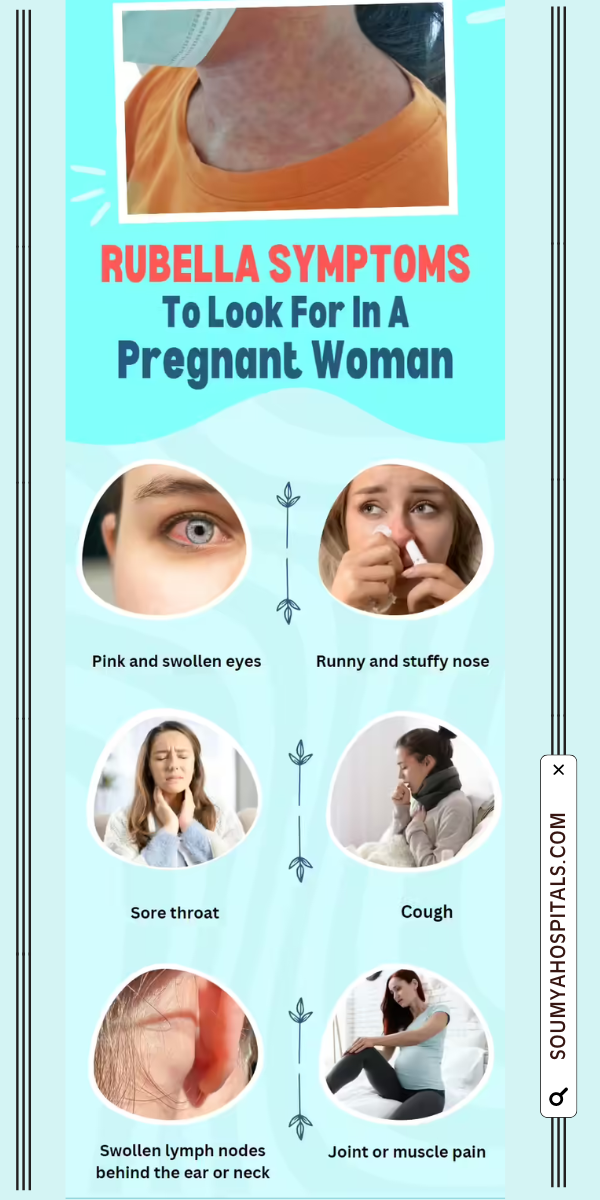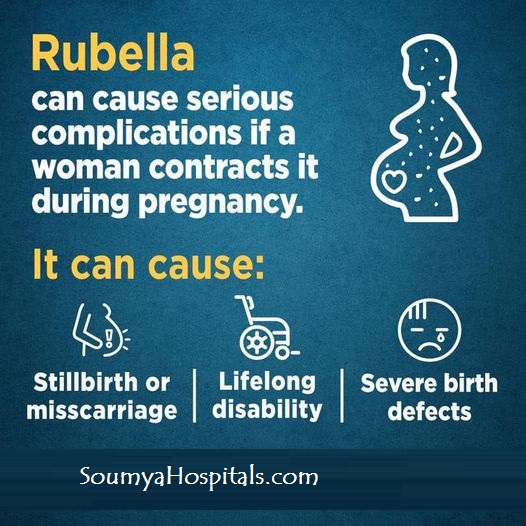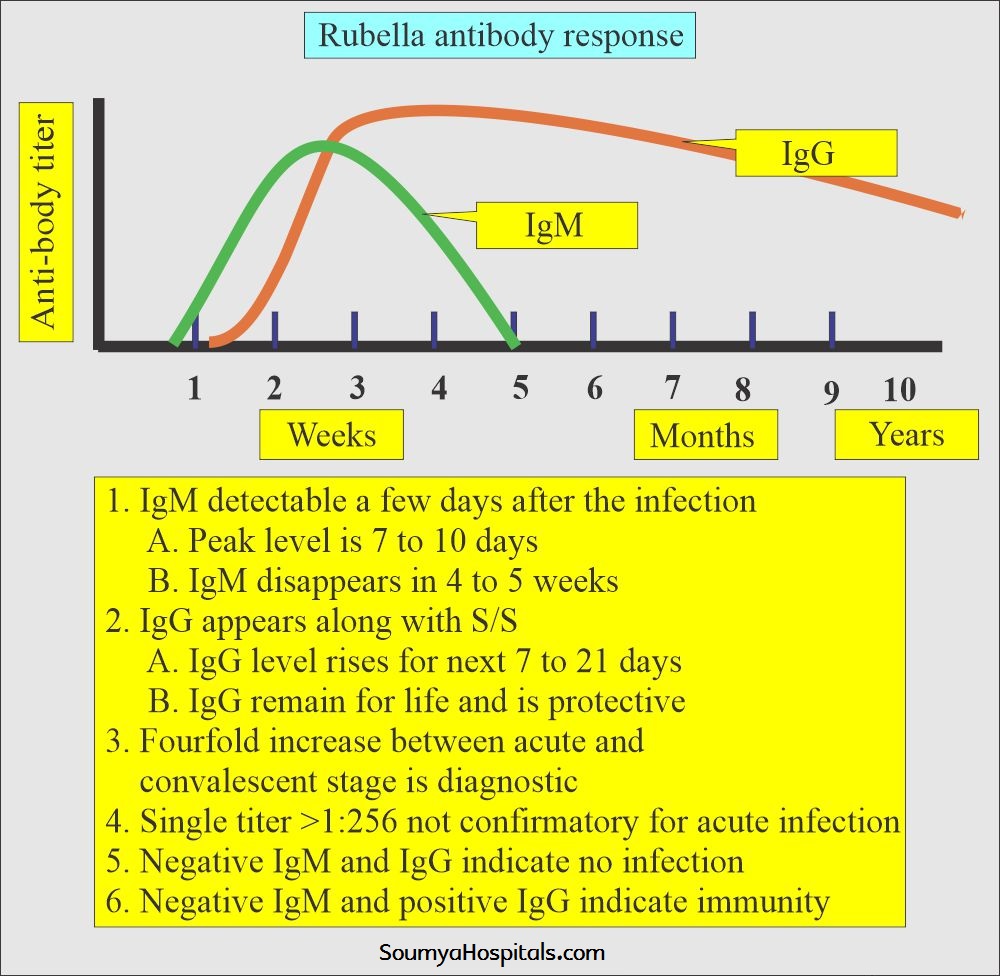Are You Protected Against the "German Measles"? Discover the Crucial Rubella Immunity Test Information from our ultimate guide on tests during pregnancy.
Can you imagine a simple blood test protects your health and possibly safeguard your future child from severe birth defects? Wondering what it would be? Just enter into the world of rubella immunity test guide.
Rubella IgM or IgG Test is a vital screening tool that's mainly important for those planning to start a family. Understanding rubella immunity could be a game-changer, whether expecting, planning to conceive or simply curious about your health status.
Still confused about what exactly is rubella, and why does immunity matter? In this guide, we'll explore the ins and outs of this essential rubella test, from its purpose to what your results might mean.
Do Read: Hepatitis B in Pregnancy
Ready to uncover the facts about this often-overlooked but critically important health check? Let's dive in and learn why the rubella immunity test might just be your next smart health move.
- What is Rubella?
- Rubella and Pregnancy
- Symptoms of Rubella Virus
- What is the Rubella Test?
- What is Serology Testing for Rubella?
- Purpose of Rubella Antibody Test | Why Do I Need a Rubella Test?
- Who Gets Rubella Igg Test?
- How To Diagnosis Rubella Virus?
- What Happens During Rubella Test & How Is Rubella Immunity Test Done?
- What Does The Rubella Test Results Mean?
What is Rubella?

Rubella is a mild, flu-like contagious viral infection that affects people with high fever, red rashes on the skin, and more. The other name of Rubella is German Measles or 3-day Measles.
Rubella can be serious in pregnancy, so perform the test at the initial prenatal visit and start treating it for a healthy baby.
It also causes severe effects on the unborn child when the mother is rubella-positive during the pregnancy. The healthcare providers suggest getting babies vaccinated at the right time.
Rubella and Pregnancy
Rubella infection during pregnancy is dangerous as it leads to potentially severe inborn abnormalities for the growing fetus. When it causes the fetus then It is called congenital rubella syndrome (CRS).
A few common abnormalities that included are:
- heart problems
- cataracts
- low birth weight
- intellectual disabilities
- deafness
- damage to the liver and spleen
- skin rash at birth, or blueberry muffin syndrome
Some other less common abnormalities that a baby may develop are:
- glaucoma
- brain damage
- inflammation in the lungs
- thyroid and other hormone problems
If a person is infected with Rubella during the first trimester, then there will be severe abnormalities commonly occurring during pregnancy. As this is non-curable, the preventive step is getting the MMR vaccination done before planning for pregnancy.
Symptoms of Rubella Virus
One of the commonly seen rubella symptoms is a distinctive rash spotted in red, purple, or darker color on the skin. This rash feels rough or bumpy which starts on the face and comes over the body.
The rash is often called blueberry muffin syndrome when it infects babies. The other signs or symptoms that can be seen in a person with rubella virus are as follows:
- Cough
- Swelling and redness in the eyes
- A mild fever
- Swollen lymph nodes
- A stuffy or runny nose
- Headache
- Aching joints
Wondering what are Hepatitis C Symptoms? Why don't you find them now? Just click on this informative guide i.e., Hepatitis C in Pregnancy.

What is the Rubella Test?
Rubella Test is a blood test that helps identify the presence of antibodies opposing the rubella virus in the blood. The results of the IgM test can be shown in positive or negative terms. This test can be done when your doctor thinks you have rubella in your blood.
When you have attacked with rubella, two types of rubella antibody tests must be considered. They are IgM and IgG.
Immunoglobulin M (IgM) antibody test:
Usually, doctors start with this IgM antibody test when they think someone has rubella. These IgM antibodies appear in the blood when a person is newly infected with rubella. Most individuals will have these antibodies within four days of showing symptoms. The IgM antibodies can be detected for about six to eight weeks or sometimes even longer after the infection.
Immunoglobulin G (IgG) antibody test:
IgG antibody testing is a significant method for identifying rubella and fixing immunity. It effectively separates between recent infections and immunity due to past infections. Moreover, it is the chosen method for checking immunity toward rubella in pregnant individuals.
What is Serology Testing for Rubella?
A serology test is used to detect the presence of antibodies in the body that fight against a specific infection or disease. In Rubella Virus Infection, a healthcare professional assists with an IgG test to determine if a person has developed antibodies against the virus.
Individuals planning to conceive should take this IgG test, as it helps confirm whether they have the required antibodies to protect themselves and their future baby from rubella. This Rubella IgG test gives either positive or negative results.
Taking the igg rubella test is a preventive measure that helps secure the health and safety of both the mother and the baby.
Explore other Blood Tests During Pregnancy's First Trimester as well.
Purpose of Rubella Antibody Test | Why Do I Need a Rubella Test?
The main objectives of the Rubella Test during pregnancy are listed below:
- Rubella testing is crucial for pregnant women as it helps to confirm whether they have the infection or need to get vaccinated promptly.
- This viral infection can cause serious congenital disabilities in the unborn baby, such as heart problems, intellectual disability, miscarriage, or stillbirth.
- Thus, pregnant women should undergo rubella testing to notice and control any potential complications.
Who Gets Rubella Igg Test?
This rubella test is performed under the following conditions:
- When couples are planning to have a baby.
- Women who get pregnant.
- A mother who has had rubella while giving birth to a newborn baby should be tested for it.
- Persons with rubella symptoms
- A newborn baby who gets affected with birth defects or any abnormalities should be checked for rubella.
- Also, healthcare workers who haven't had rubella or the vaccine should take the test for the safe side.
How To Diagnosis Rubella Virus?
Rubella Immunity Testing can be used to diagnose or prevent the virus in patients with rubella symptoms. There are various ways to spread out the rubella virus.
Some of them are coughing, sneezing, and close contact with the infected person. This rubella diagnosis can be minimal and often there is no requirement for treatment.
When it comes to pregnant women, rubella should be treated well if not it transmits to a developing fetus and causes harmful effects.

What Happens During Rubella Test & How Is Rubella Immunity Test Done?
Firstly, consult your family doctor or expert healthcare provider to diagnose rubella by symptoms. If they find any signs of rubella in person then going through a Rubella test is what they suggest commonly.
The process of the rubella immunity test can be like this:
- An expert lab technician or a doctor will insert a sterile needle in the vein of your arm to draw the blood sample for the rubella test.
- In the next step, the blood sample will be tested and analyzed for rubella antibodies (presented if any).
- Also, you will be requested to provide the vaccination, past infections, or pregnancy information during the test.
What Does The Rubella Test Results Mean?
Here you can check out the simple explanation about Rubella IgM and IgG test results interpretation. Check the below points:
Meaning of IgG Test Results-
In the Rubella igg test report, results are displayed in positive, negative, and intermediate terms.
Positive: If the report says 1.0 or higher value then it indicates the immunity to rubella because of the vaccination or past infection.
Negative: When the value is lower than 0.7 means a negative result that says inadequate antibodies for immunity.
Intermediate: If the resulting values are 0.8 or 0.9 then it may indicate recent vaccination, with antibodies not yet detectable so recommended to take a retest.
Meaning of IgM Rubella Test Results-
Positive IgM Test: Indicates recent infection, but may also yield false positives due to other viral infections or cross-reactivity with blood proteins. Hence, suggested to perform further tests for confirmation. Babies do not receive IgM antibodies from their mothers, so a positive test in a newborn indicates infection either in utero or shortly after birth.
Negative IgM Test: Generally suggests no infection, but individuals with weakened immune systems might not produce detectable antibodies even if infected.

Do Refer:
Conclusion
Hey, now you guys have a piece of knowledge about the Rubella and its tests. So, don’t wait for any excuse—take control of your health today! Schedule your Rubella Immunity Test now and make sure you're immune to rubella.
Safeguard yourself, your family, and future generations by monitoring these viral infections before or during pregnancy and have a healthy delivery. Look for more such guides by visiting Soumya Hospitals regularly and clear all your queries about pregnancy.
